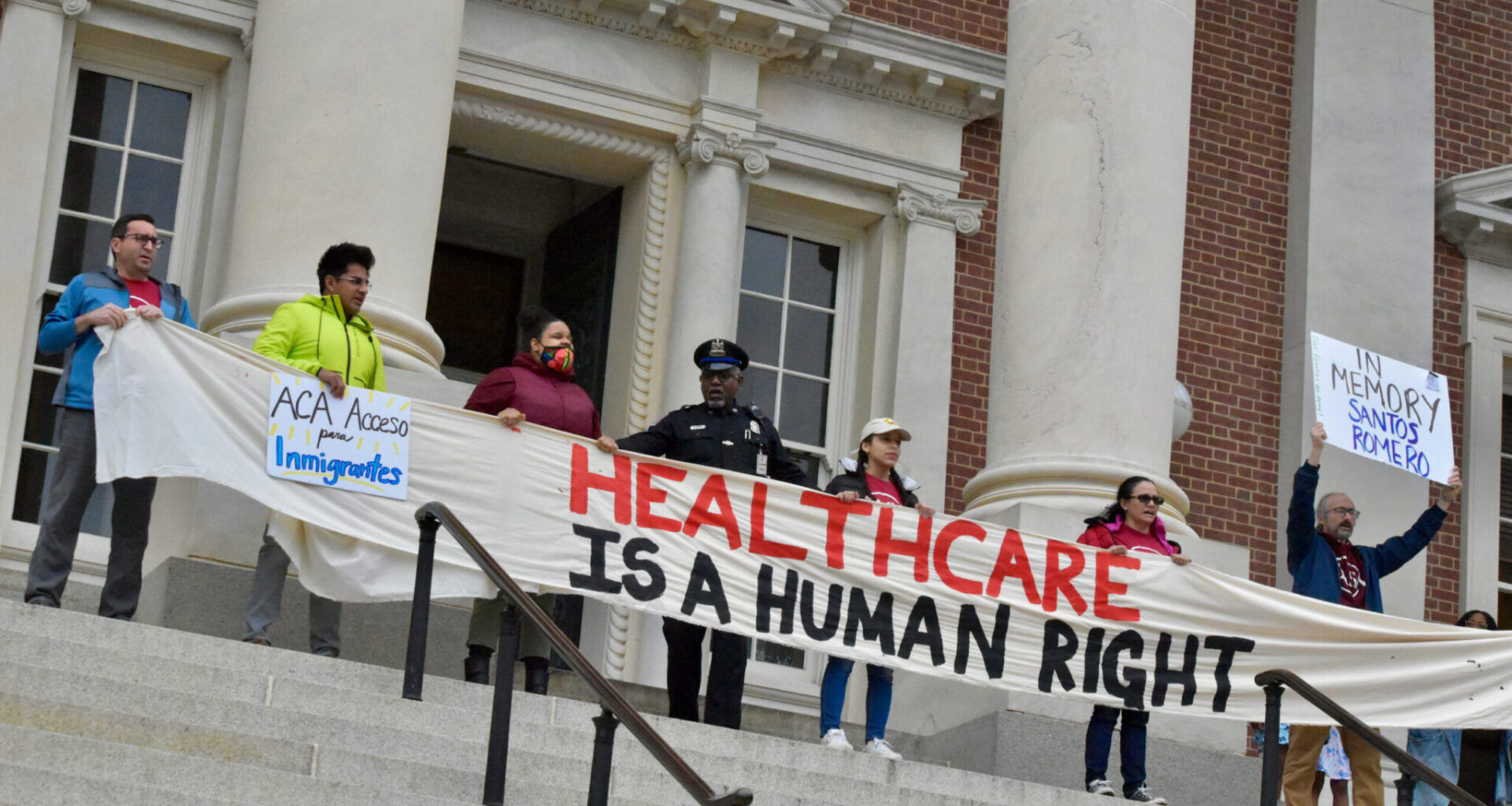Maryland Health Benefit Exchange officials say delay in Access to Care Act is needed after new Trump immigration and health policies.
This article was republished with permission from WTOP’s news partners at Maryland Matters. Sign up for Maryland Matters’ free email subscription today.
A plan to give undocumented immigrants access to Maryland’s state health insurance marketplace next year has been put off until 2028 by state officials, citing recent federal policies affecting immigrants as well as overall uncertainty in health care markets.
The delay was the one of the biggest changes outlined for state lawmakers Thursday by health care and health insurance officials discussing the impact of recent Trump administration policies on Maryland’s health care system.
The joint virtual meeting of the Senate Finance and the House Health and Government Operations committees went over policies that are expected to increase health insurance costs, create barriers to access plans and reduce federal funding to Maryland, among other effects. The briefing also laid out the ways in which Maryland might respond to those changes.
Michele Eberle, executive director of the Maryland Health Benefit Exchange, said one of the changes she was the “most unhappy about” was a delay in the implementation of the Access to Care Act, in light of recent federal developments.
Currently, undocumented immigrants can purchase health care plans directly from insurers. But they are barred from using the Maryland Health Benefit Exchange to compare plans and find the most appropriate insurance for their households.
The 2024 Access to Care Act would have changed that by opening the marketplace to undocumented residents, allowing them access to the marketplace, where they could comparison-shop health plans from different providers. It was to take effect next year if the state could get a waiver from the federal government, which is got while President Joe Biden was still in office.
The law would not have given undocumented residents access to the federal subsidies to make health care affordable for many customers. But, for those who could afford to buy individual plans without a subsidy, it would at least have given them a chance to use the online marketplace as a tool to weigh their options.
But with the Trump administration’s antagonistic approach toward undocumented immigrants, along with significant changes to health care funding, Eberle said the exchange decided to delay opening the marketplace to undocumented residents until 2028.
“We worked really hard under the last [Biden] administration to make sure that it was approved — and we were all set to go,” Eberle said. “We did not anticipate at that time that we would have the Marketplace Integrity Rule or HR 1 that would throw up a whole bunch of new requirements that we would have to put in place in short order.”
The rule and the bill — also known as the One Big Beautiful Bill — overhaul parts of the Affordable Care Act and other federal health regulations, and states like Maryland are having to focus their resources on complying with those changes.
The Marketplace Integrity Rule also revoked a Biden-era decision that classified immigrants covered by the Deferred Action for Childhood Arrivals program — for undocumented immigrants who were brought to this country as children — as “lawfully present” individuals. Being lawfully present would have given DACA recipients access to the federal subsidies that help make health care coverage affordable for many.
Without the classification, DACA recipients lose access to the subsidies, a change that is set to affect about 300 DACA recipients in Maryland currently benefiting from those subsidies.
But federal decisions targeting Maryland’s undocumented and immigrant populations were just part of what Insurance Commissioner Marie Grant called “gloomy but important” health care-related updates under the Trump administration.
Grant noted the significant rise expected next year in insurance premiums — due in part to the anticipated expiration of pandemic-era federal tax credits that bring down costs of individual plans purchased through the Affordable Care Act.
In September, the Maryland Insurance Administration approved an average premium increase of 13.4% across plans next year, less than what insurance companies initially asked for, but still a significant hit in monthly costs for many low- to middle-income families.
Health care advocates fear people will drop their coverage because they can no longer afford their plans if those credits expire. But carriers say the rate increases are needed to offset the number of people they expect will choose to go without health insurance — due to high costs.
The General Assembly approved funding this year that would partially replace the soon-to-expire federal tax credits for the coming year. But those state subsidies are only temporary fixes, analysts say, and even with that assistance plenty of people will still pay more each month for coverage than they did this year.
Congress could vote to extend those tax credits, which is at the heart to the current government shutdown debate. But Grant notes that time is running out to make that decision and have it effect 2026 health care plans.
“We’re expecting those enhanced tax credits to expire by the end of this year, unless Congress takes action to extend them,” she said. “The clock is ticking. It is … likely we’re getting to a point where, unless this extension happened in the next couple of days, it is likely too late to have carriers refile rates for 2026.”

